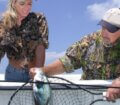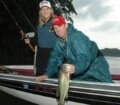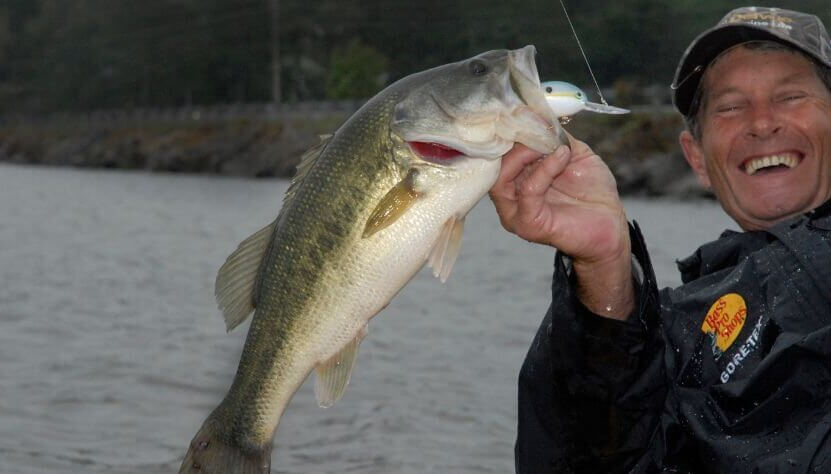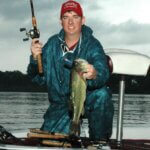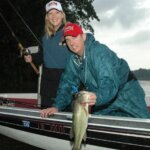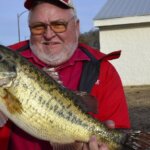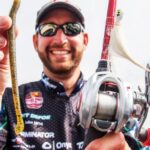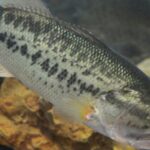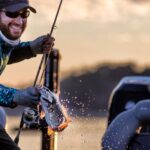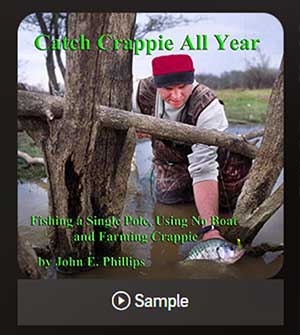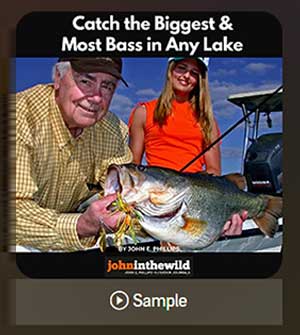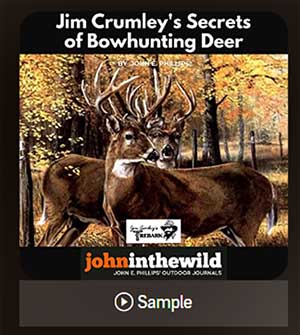Editor’s Note: When storm clouds begin to brew, and rain starts coming down, fair-weather anglers will crank-up their motors and head for home. But not Gary Klein of Mingus, Texas, a longtime top bass fisherman and one of the founders of Major League Fishing. By bass fishing in wet weather, Klein has learned how to catch bass and how to become a better angler.
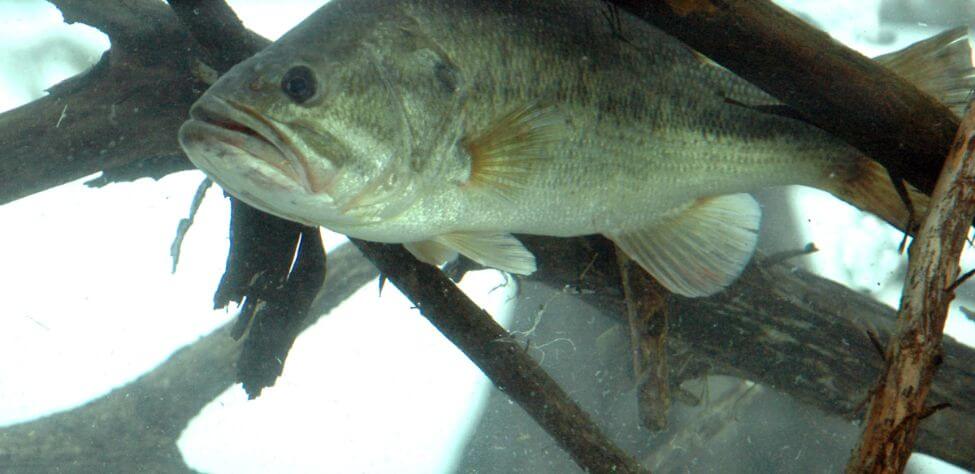
According to Gary Klein, “If you want to grow in your knowledge of the sport of bass fishing, and if you want to catch bass any time you go to the lake, then the best thing to do is always try and fish on the worse weather days. You will learn more about how to catch bass under bad-weather conditions. You also will discover that when most other anglers are leaving the lake, that time actually is the best time to be on a lake. When other fishermen are thinking that because of the weather they can’t fish, you’ll know that because of bad weather and having fished in bad weather before, you can catch bass. Fishing under bad-weather conditions provides confidence for the angler and more bass for the livewell.
“If rain’s been falling the day and the night before I plan to fish, and rain’s still falling when I reach the lake, then I know several things before I get to the water. First of all, I realize that the skies have been overcast for a long time. I’ll know that my first plan of attack will be to use baits that will help me cover a lot of water.”
Buzzbaits:
“One of my favorite lures is a buzzbait because it tends to draw bass to itself,” Klein emphasizes. “When a warm rain comes into a lake, it usually aerates the water at the top and makes the bass more active and more apt to feed on the surface. I’ll look for pebble banks or rocky banks—mainly to escape the mud that will be coming into the lake during the rain. If the rain that’s falling has a chance to hit on the rocks and then come into the lake, it won’t carry as much siltation with it as the rain that hits a clay or muddy bank and then runs into the water.
“The fish in clear water should be the easiest to catch and the easiest to continue to take during the rain. What you have to remember is that the rain can leave at any time. Generally, after the rain comes high skies and bluebird days. The bass that are in the clearer water stop hitting, and you may have to move back to the stained water to catch fish. But as long as I’m in the rain, I’ve found I take the better and bigger bass on the rocks.
“Due to the overcast sky, I think bass tend to be roaming more along the rocky bank and not holding in as tight to cover as they will on a sunny day. By covering more clear water with a buzzbait along a rocky bank, I believe my chances of catching bass are greatly increased.”
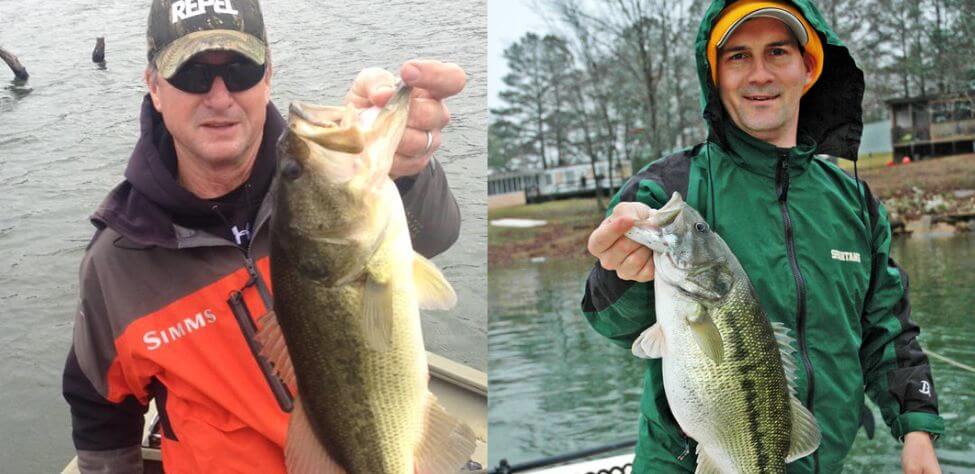
Spinner Baits:
“Another lure that works equally as well on these rocky banks is the spinner bait,” Klein reports. “I like to cast the bait out and reel it in fast, just under the surface. Then it will leave a wake just as it comes to the boat. With a spinner bait or a buzzbait fished like this, a bass often will come from as far as 10-feet away to take the lure. On rainy days on rocky banks, these are my favorite baits to fish.
“I prefer basic colors for the skirts of my spinner baits. I like white/chartreuse/white or chartreuse/blue, which are about the only colors of skirts I use on my spinner baits. I like to combine the colors of my blades. I prefer a silver front blade and a gold back blade or a silver forward and a copper on the back blade.”
Tomorrow: Bass Fishing a Fast-Moving Thunderstorm
Expert Guidebooks on Bass Fishing: Best Sellers

If you want to become the best you can be, find someone who’s already become the best at what you want to do and follow his or her instructions. This is what I’ve done in my new book, Bass Pros’ Season by Season Tactics.
In this book, I’ve chosen some of the best bass fishermen to give you advice on how to find and catch bass during each period of a bass fish’s life, including professionals like Kevin VanDam, Denny Brauer, David Fritts, Rick Clunn, Larry Nixon, George Cochran, Mark Davis, Woo Daves, Gary Klein, Davy Hite, Michael Iaconelli, Skeet Reese, Mark Rose, and Shaw Grigsby.
My hope is that this book will help you find and catch more bass at every time of the year and each day you’re on the water. The men included in this book are some of the best mentors I know of for successful bass fishing anywhere in the nation.
VERSIONS: AUDIBLE & PRINT
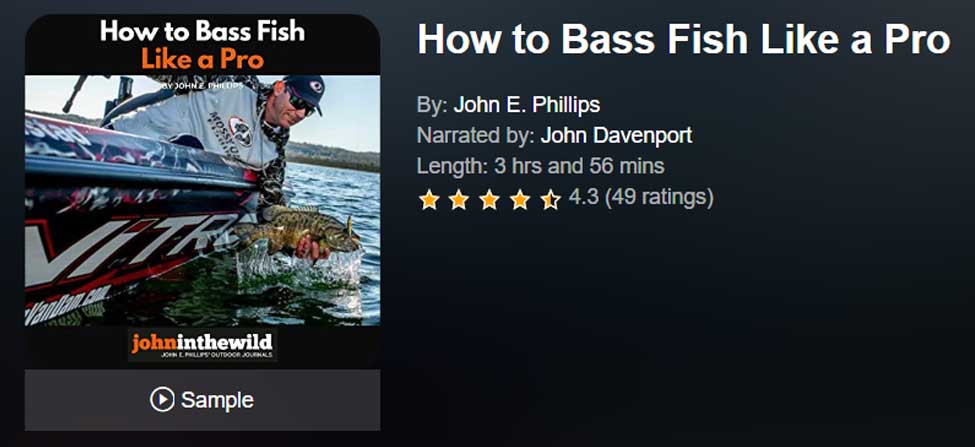
How to Bass Fish Like a Pro
If you could sit down and interview some of the best pro bass fishermen in the world, what would you want them to tell you to help you improve your bass fishing skills?
In this book, How to Bass Fish Like a Pro, Kevin VanDam explains how he catches bass consistently, and how he fishes all 12 months of the year. In the bonus chapters, he will tell you how to fish for hot-weather bass.
Denny Brauer will tell you the ways he hates to fish, how he picks the best fishing lures for different water and weather conditions, and will give you his best fishing tips for hot weather. In Brauer’s bonus chapters, he’ll teach you when to flip a jig, a tube, or a creature bait and tell you his three tips for how to be a better fisherman.
Mark Davis, in Chapter 3 of the book, explains his five secrets to becoming a better bass fisherman, how to turn your bass fishing around to the positive side, and how to catch hot-weather bass. In the bonus chapter, you’ll get six different interviews with Davis, where he tells you: three tips for becoming a better bass fisherman; his three favorite bass lures; and how to keep a big bass on the line and get it to the boat.
James Niggemeyer tells you how to become a bass pro. He also tells you how to catch bass when the weather sizzles. In Niggemeyer’s bonus chapter, he explains how to move from being a bass-club fisherman up to being a pro.
Mark Rose will explain his five favorite go-to bass lures, and how to catch bass in the middle of the summer.
In this book, you’ll hear from top-performing pro fishermen about how they catch big bass consistently, and what they do to win millions of dollars as professional bass fishermen.
VERSIONS: AUDIBLE, KINDLE & PRINT
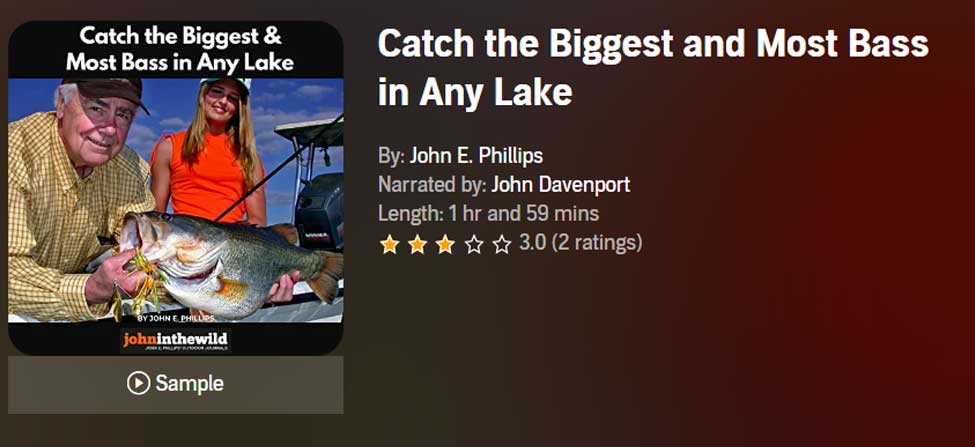
Catch the Biggest and Most Bass in Any Lake
If you were having open-heart surgery at the hospital, you’d want the best doctor with the most experience and the latest equipment and techniques that money could buy to do your operation. You’d study these doctors’ credentials to learn who was the best.
This is the same type of research that author John E. Phillips has done with the best bass fishermen in the nation to solve the problem of how to find and catch the biggest and the most bass in any body of water that he fishes.
This is the same type of research that author John E. Phillips has done with the best bass fishermen in the nation to solve the problem of how to find and catch the biggest and the most bass in any body of water that he fishes.
In this book, you’ll hear about the techniques, tips, baits, lures, and tackle that 18 of the nation’s best professional fishermen use to support their families by winning bass tournaments and catching the most and the biggest bass they can in every tournament they fish.
Most of these anglers are Bassmaster Classic winners, Megabucks winners, Angler-of-the-Year and FLW Tour winners – like Rick Clunn, Kevin VanDam, George Cochran, Mark Davis, Paul Elias, Skeet Reese, Larry Nixon, Hank Parker, Ken Cook, Denny Brauer, Alton Jones, and Jay Yelas.
Also, every serious bass fisherman should know Timmy Horton, Mark Rose, Randy Dearman, Harold Allen, Mike Wurm, and Shaw Grigsby, men whose tactics you’ll find in this book. To learn how to fish for bass and change your bass-fishing trips from fishing trips to catching trips, this book is a must-have.
VERSIONS: AUDIBLE, KINDLE & PRINT
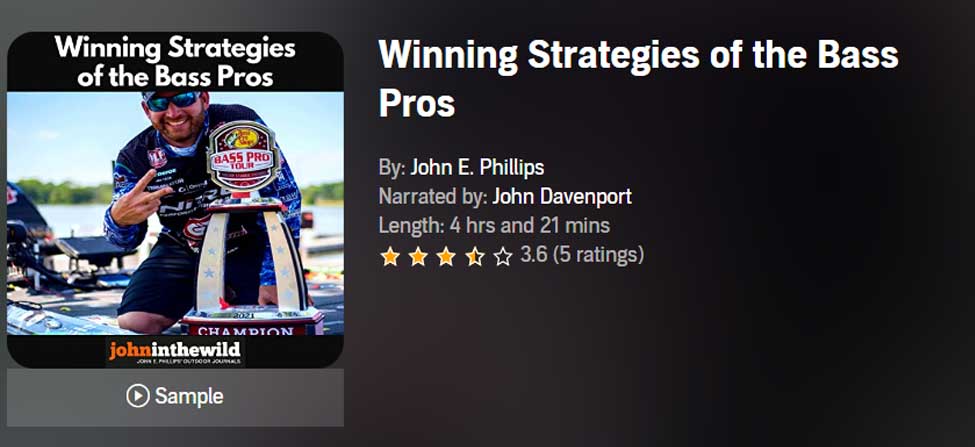
Winning Strategies of the Bass Pros
I learned many years ago if you want to be the best you can be, then you need to learn from the best – particularly when you want to be the best bass fisherman possible. That’s why I’ve written Winning Strategies of the Bass Pros about 11 top bassers.
If you’re wondering at what age you can start learning about bass fishing, you’ll see in the first two chapters about two young men who have come up through the ranks of collegiate bass tournaments – Jordan Lee, who won the Bassmaster Classic in 2017, and Dustin Connell, who won $100,000 in a B.A.S.S. Elite Series tournament in Mississippi in 2017. Top-name pros on both the B.A.S.S. circuit and the FLW circuit are in this book, including Kevin VanDam, Jay Yelas, George Cochran, Rick Clunn, Larry Nixon, Woo Daves, Randy Howell, Scott Canterbury, and Gary Klein.
VERSIONS: AUDIBLE, KINDLE & PRINT
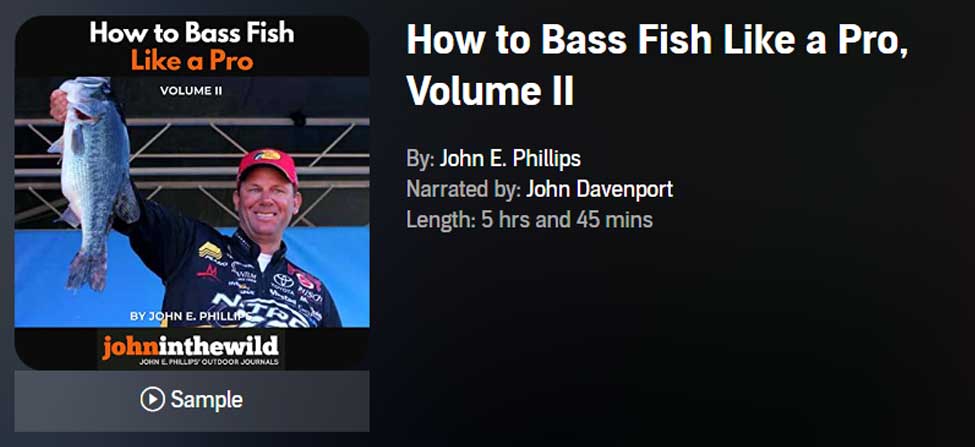
In How to Bass Fish Like a Pro, Volume II, you’ll learn tips and tactics from 21+ Bassmaster Classic winners, two Major League Fishing champions, and 20+ Bassmaster Anglers of the Year about some of the dramatic changes in bass fishing, like:
Depth Finders: You need the latest and greatest depth finders available, since they’re the brains of a bass boat with maps, GPS, side scanning, down scanning, and forward scanning features that enable you to see underwater structures and fish 100-feet away with a 360-degree view. Today’s competitive bass anglers may have four or five depth finders located on the consoles and the bows of their boats.
Other Changes in Equipment: Power fishing for bass using heavy line and rods, big baits, and bait-casting reels that resemble winches have given way to finesse fishing and new techniques like fishing the Ned Rig, the Neko Rig, the Chicken Rig, and the Tokyo Rig on spinning tackle and line as small as 6-10 pounds.
The Growth in Youth and College Competitions for Bass: A young person can begin competition fishing as early as the second grade and continue throughout high school. After that, if the competitor qualifies, he/she may win a scholarship to fish on a college team that eventually may lead them to a professional bass-fishing career.
Changes in the Ways Anglers Bass Fish: Many of the most-consistent winners never pick-up their rods to fish during pre-fishing. Instead, they’ll idle across the water, dropping waypoints from their electronics in places where they’ve identified schools of bass holding. These contestants will have at least 50-250 locations, where they’ve pinpointed schools of bass before a tournament starts.
VERSIONS: AUDIBLE, KINDLE & PRINT

